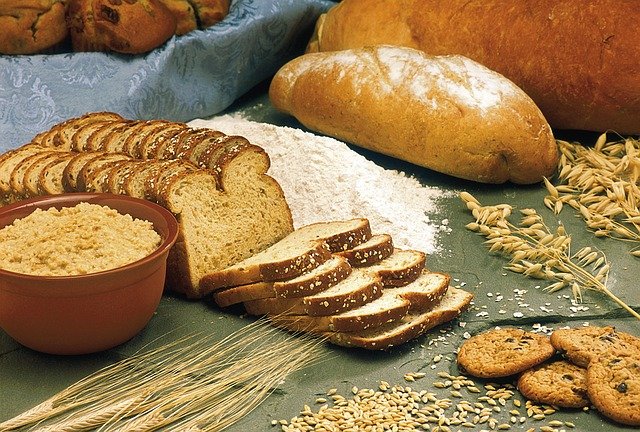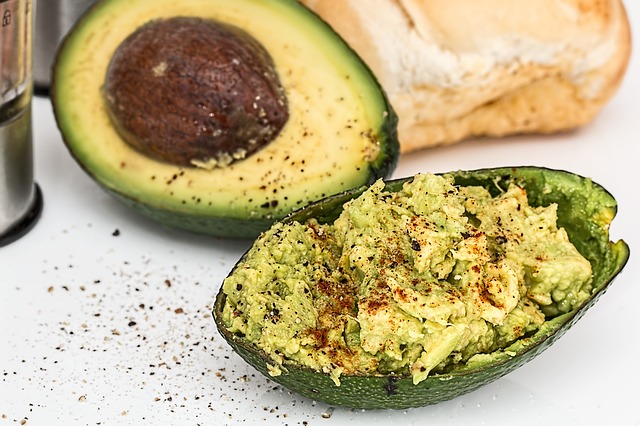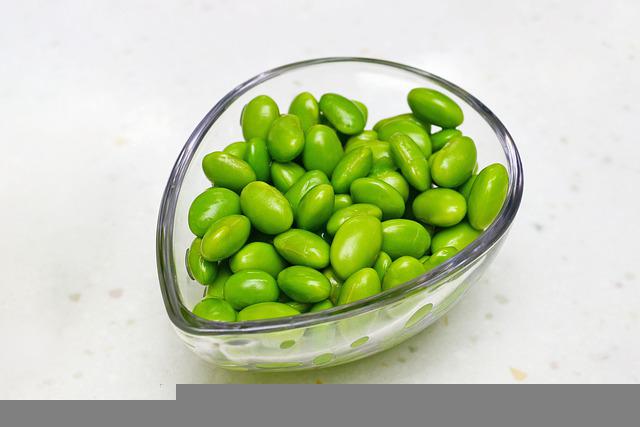Some diet regimes have branded carbs as “good” or “bad” over the years. It’s crucial to understand how fats, protein, and carbohydrates—work together to keep us healthy.
What Are Carbohydrates and Why Do They Matter?
Carbohydrates (carbs) are an important source of energy and are necessary for optimum health. When we consume carbs, our bodies turn them into glycogen (sugar), which provides the energy we need for physical processes.
Although there are proven benefits to limiting refined carbohydrate intake from ultra-processed foods, most people benefit from including natural carbohydrate sources in their diet, such as fruit, starchy vegetables, legumes, and whole grains. While some carbs are healthier than others, creating a balanced diet is all about balance and moderation.

Eliminating all carbohydrates might produce weariness, decrease workout performance, and possibly cause nutritional shortages.
Carbohydrates can be incorporated into your healthy eating plan, allowing you to eat a variety of meals while still progressing toward your fitness goals.
Carbohydrate Types
Carbohydrates are more correctly classified as “complicated” and “simple” rather than “good” or “bad.” Both types of carbohydrates can be refined.
Carbohydrates that are complex
Complex carbohydrates are classified as polysaccharides because they include at least three glucose molecules. They can be found in meals that are high in fiber and starch. These take a long time to digest, but they have vital vitamins, minerals, prebiotics, and antioxidants.
Slow-release energy helps to balance appetite and blood sugar levels, allowing you to feel fuller for longer. Whole grains, lentils, quinoa, legumes, oats, and brown rice are all high in complex carbohydrates.
Carbohydrates that are simple
Simple carbohydrates, also known as monosaccharides and disaccharides, contain only one or two sugar units. This type of food contains occurring or added sugars and is readily absorbed. They are fruits, juices, milk, white wheat, white rice, sugar, and soda.


White bread and white pasta are refined carbohydrates. They are typically made from entire grains (that is, complex carbohydrates), but the bran and germ of the whole grains are removed during the process. So these foods retain little nutritional value.
Swapping ‘Simple’ Carbohydrates for ‘Complex’ Carbohydrates
Switching refined carbohydrates to complex carbohydrates gives you a more nutritious bang for your dollar. Consuming an ear of corn in its husk rather than cornflakes, a peeled orange rather than orange juice, or a baked potato rather than a bag of potato chips can provide your body with the fiber and micronutrients needed for sustained energy and disease prevention.
Excellent Carbohydrate Options
Here are a few carbohydrates to consider adding to your shopping list:
- Lentils with beans: They can be served cold or baked into meals.
- Nuts and seeds: These include healthful fats as well as complex carbohydrates.
- Tubers: Sweet potatoes and white potatoes (preferably with the skin) are high in complex carbohydrates.
- Vegetables: Consume a variety of vegetables every day for fiber and vitamins.
- Whole fruits: When possible, keep the skin on to increase fiber intake.
- Oats, quinoa, brown rice, whole grain bread, and barley, as well as items prepared from them (such as bread and pasta), provide complex carbohydrates.
Many of the nutritional characteristics of natural foods are lost during food preparation (namely fiber). Sugar, salt, and preservatives are then frequently added to improve flavor and extend shelf life. Unfortunately, these additives have little effect on our health.


That is why whole foods are usually preferable to processed foods. Some foods, such as cereal and bread, have nutrients restored back in. However, it is preferable to eat more whole foods rather than rely on fortified meals.
Shopping for items with a shorter list of ingredients on the product label is a solid rule of thumb.
Limit Your Carbohydrate Consumption
Here are some examples of processed carbs that should take up a small portion of your entire diet:
- Juices: Even 100% juice is a high-sugar source; dilute it with water or restrict it to one glass per day.
- Snacks with preservatives: Sugary granola bars and confectionery, as well as refined flour pretzels and crackers, should be consumed in moderation.
- Sugary drinks: Sodas, sports drinks, chocolate milk, and sweetened teas all contain a large quantity of sugar.
- White bread: Refined flour products are typically low in fiber and vitamins, and they contain additives that should be avoided.
- Vegetables, fruits, legumes, and whole grains are the most nutritious carbohydrate sources.
Carbohydrate Fiber Types
Dietary fiber is mostly derived from complex carbs. To meet our body’s fiber requirements, the Dietary Guidelines for Americans recommend that we consume 45% to 65% of our daily consumption of these carbs.
Fiber consumption should range between 25 and 35 grams per day. Fiber consumption has been proven to help with reduction in body fat, cholesterol reduction, improved digestion, and a lower risk of diabetes, and cancer. For optimal health, we require two forms of fiber: insoluble and soluble.
Fiber that is insoluble
Insoluble fiber is not broken down or absorbed into the bloodstream during digestion. It increases stool bulk for easier removal, reduces constipation, and protects against colon cancer.
Insoluble fiber is abundant in the following foods:
- Barley
- Rice (brown)
- Cereals with bulgur or whole grains
- Couscous
- Fruits
- The majority of vegetables
- Seeds
- Bran from wheat
- Bread made with whole wheat
Fiber that is soluble
Soluble fiber absorbs water and forms a sticky gel in our digestive tract, softening the stool and making it easier to pass. It also binds to cholesterol and sugar, preventing their absorption into the body.
Soluble fiber functions as a prebiotic, fostering beneficial gut bacteria, decreasing inflammation, and increasing immunity. Soluble fiber is abundant in the following foods:


- Avocados
- Barley
- Peas and dry beans
- The majority of fruits
- Seeds and nuts
- Bran of oats
- Oatmeal
Low-Carb Diet Effects
While low-carb diets can help you lose weight quickly, they may not be the ideal solution for everyone. While low-carb diets can assist older and, obese adults lose weight, more active people often require more carbohydrates in their diet for energy.
Low-carb diets may also be associated with an increase in all-cause mortality, according to research. According to another study, low-carb diets may raise the risk of heart problems such as strokes and heart failure.
Low-carbohydrate diets may also have an unfavorable effect on hormones, interfering with the menstrual cycle and causing exhaustion and mood swings.
What to Search For
The carbohydrate comparison below demonstrates how to choose the optimum carbs for your health:


Carbohydrate foods should have the following characteristics:
- High fiber content: Compare labels to ensure that you are getting adequate fiber every day.
- Minimum processing: Choose foods that are low in refined sugars, refined carbohydrates, salt, saturated and trans fats.
- Nutrient-rich: Colorful, natural foods provide a variety of nutrients.
Carbohydrate food characteristics to avoid:
- Highly refined: Ingredient lists that are lengthy and Nutrition Facts indicating a high salt content, trans/saturated fats, and sugar
- Nutrient-poor: Vitamins, minerals, and fiber are deficient.
- Instead of “enriched flour,” look for food labels that include the word “whole.”
According to studies, refined sugars and white table sugar account for more than 20% of the calories we consume each day. Refined sugars have been associated with sickness, obesity, and type 2 diabetes. Added sugars can be identified on food labels by their ending in “-ose.”
Questions and Answers
How much carbs should you eat per day?
The American Dietary Guidelines for 2020-2025 recommend at least 130 grams of carbohydrates each day. In other words, carbs should account for 45% to 65% of your daily calorie consumption.
If you have diabete, what are some good carbs to eat ?
People with diabetes should acquire the majority of their carbohydrates from whole, unprocessed, non-starchy vegetables like asparagus, broccoli, leafy greens, mushrooms, tomatoes, bell peppers, green beans, cabbage, and cauliflower. These veggies are high in fiber and low in simple carbohydrates, which helps to manage blood sugar levels.
To Conclude
Carbohydrates are necessary for appropriate nourishment and long-term energy. Severe carbohydrate restriction can cause dizziness, exhaustion, nausea, weakness, and depression, as well as other serious health hazards. Choosing unprocessed carbohydrates over refined ones will help your body reap the most benefits from this macronutrient. It’s best to treat yourself to refined carbohydrates on occasion rather than as a regular part of your diet.
